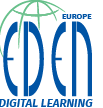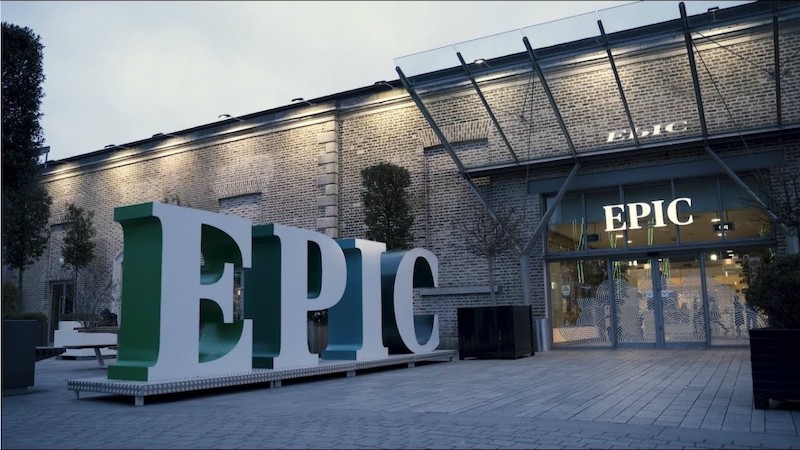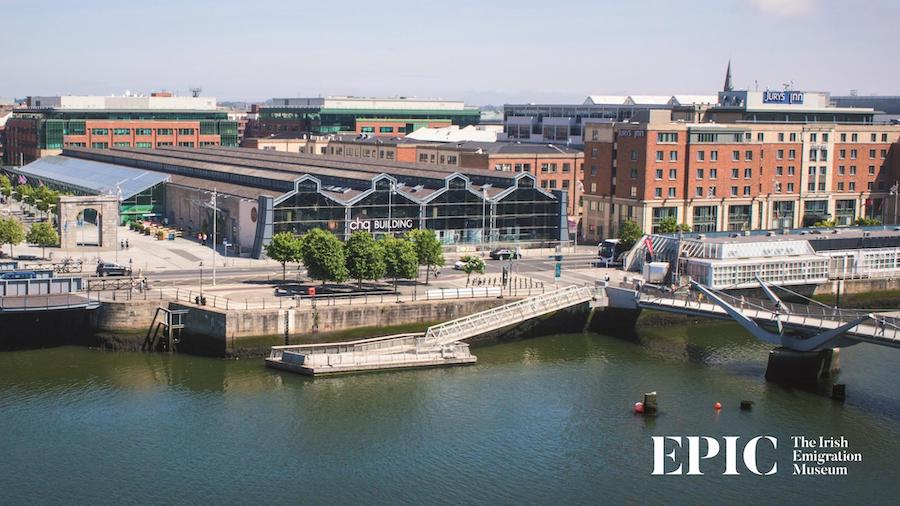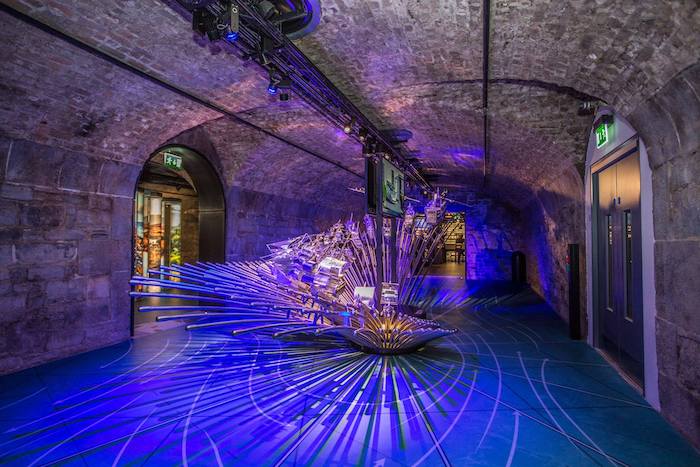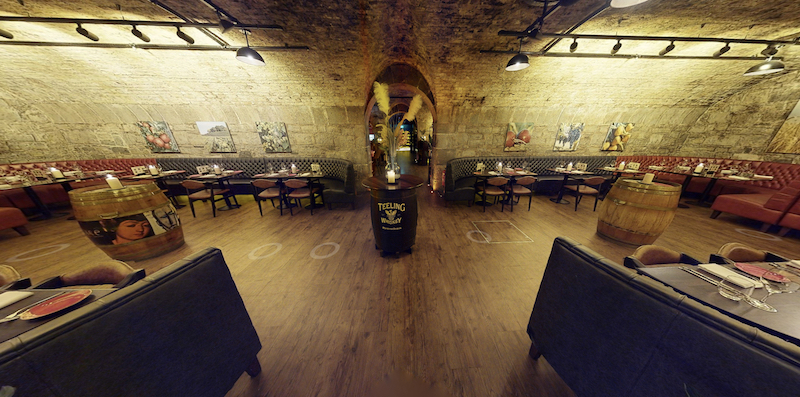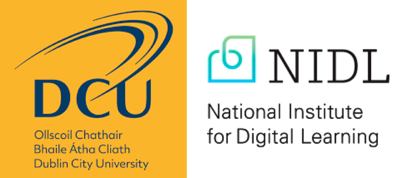
- This event has passed.

EDEN 2023 Annual Conference in Dublin
June 18, 2023 @ 08:00 – June 20, 2023 @ 17:00
Conference Theme
The 2023 EDEN conference is designed to explore the theme, “Yes we can!” – Digital Education for Better Futures. This theme focuses on the language of opportunity and challenges participants to dream big! While there are many big and small challenges that we can’t ignore in building a more inclusive digital future, the conference places the spotlight on the “art of the possible” in reimagining teaching, learning and assessment and delivering on the promise of better futures for all. We hope to encapsulate throughout the conference the spirit of hope and optimism through the enabling language of “yes we can”. More specifically, the conference theme asks:
1. What does a better future look like?
2. How can digital education contribute to this future?
3. What can you do to help make and shape a better future?
Conference Topics
In exploring the overarching conference theme of “Yes we can”, paper submissions are invited under the following five topics and related focus tracks:
1. Transformative Education
- Digital transformation for better futures
- Fostering a digital education ecosystem for all
- Policy, strategy and leadership for the next normal
- Rewilding traditional places, spaces and habitats of learning
- Creating new lifelong learning pathways and recognition models
2. Future Pedagogies
- Putting education in the driving seat of the next big thing: AI, VR, the Metaverse, etc.
- Designing best practices for blended, hybrid and online learning
- Hacking assessment for more authentic and meaningful learning
- Realizing the potential of open educational practices
3. Next Generation Teachers and Learners
- Developing teachers’ skills and competencies for the digital era
- Exploring the Third Space in reshaping impactful professional learning
- Students as active partners in learning transformation
- Evaluating teaching and learning for continuous improvement
4. Digital Citizenship for Sustainable Futures
- Fostering resilience and wellbeing for digital living and learning
- Placing equity, diversity and inclusion at the core of digital education
- Infusing digital education across the Sustainable Development Goals
- Understanding the ‘green’ dimensions of EdTech for better and worse
5. Research Designs for Uncertain Times
- The scholarship of practice
- Students as research partners
- Reframing the digital education research agenda
- Topics related to the EU Digital Education Action Plan (2021-2027)
Yes, You Can! How to Successfully Contribute to the EDEN 2023 Annual Conference
This interactive webinar is designed to show that “Yes, you can” submit a paper for this year’s annual EDEN conference (18-20 June).The main part of the webinar is then designed to offer prospective authors and presenters an inside track on the different paper categories and how to successfully prepare their own conference submission. Members of the conference team share key tips and advice on what makes a great conference paper and how you can ensure your submission is accepted for the Dublin conference. This advice will be particularly helpful for doctoral students and those relatively new to preparing conference submissions. Finally, members of the local team offer practical information on the conference venue and provide travel and accommodation advice to help enhance your visit to Dublin.
Monday 19th June 2023 – Keynote Speakers
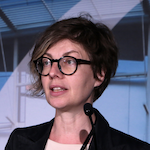
Anusca Ferrari
Policy Officer, European Commission

Rikke Toft Nørgård
Associate Professor, Danish School of Education, Denmark
Monday 19th June – Spotlight Speakers
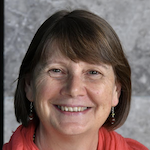
Liz Johnson
Deputy Vice-Chancellor, Deakin University, Australia
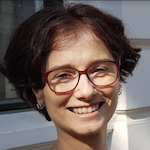
Alexandra Mihai
Assistant Professor of Innovation in Higher Education, Maastricht University, Netherlands
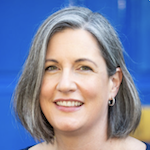
Blanaid White
Dean Strategic Learning Innovation, Dublin City University, Ireland
Tuesday 20th June – Keynote Speaker
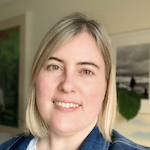
Maren Deepwell
CEO Association for Learning Technology, United Kingdom
Tuesday 20th June – Spotlight Speakers

Àngels Fitó
Universitat Oberta de Catalunya President, Spain
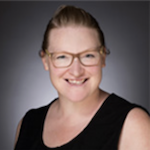
Melissa Bond
Lecturer in Digital Technology Education, University of South Australia, Australia
Monday 19th June 2023
Opening Session – Plenary 1

Anusca Ferrari is a policy officer at the European Commission, Directorate-General for Education and Culture. Formerly at DG EMPL, Anusca has worked on the validation of non-formal and informal learning and micro-credentials, as project manager at European Schoolnet and researcher at JRC. Her main area of expertise is digital competence. She is the author and co-author of multiple articles, papers, reports on technologies for learning and creativity.

Rikke Toft Nørgård is an Associate Professor at the Danish School of Education, Aarhus University, Steering Group Member at the Centre for Higher Education Futures (CHEF) and Elected Board Member of the international Philosophy and Theory of Higher Education Society (PaTHES) and the national Danish Network for Educational Development in Higher Education (DUN) where she is also founder and co-leader of the DUN-SIG on Digital Pedagogy & Learning in Higher Education. Dr. Nørgård’s research and projects focuses on the complexities, challenges and potentials of education, design, technology and philosophy in relation to the future of hybrid higher education institutions and practices. She is participating in and leading projects on the future of higher education with a focus on the arts and humanities as well as emerging technological fields and their impact on the future of education and culture across society. On March 1st 2023 the EPIC-WE Europe Horizon project that Nørgård is the Coordinator of is launched, trying to bring these fields together in an effort to provide new co-operative models, formats, events and activities for bringing higher education institutions, cultural organisations and creative industries together to co-create new cultural futures.
Title: Between the real and the ideal – Human futures in digital education?
Abstract: As a response to Bill Reading’s central question: ‘How are we to reimagine the University, once its guiding idea of culture has ceased to have an essential function?’ (Readings, 1996, p. 119), the talk introduces concepts and frameworks for imagining and manifesting more preferable educational futures by working hopefully andintentionally among those ruins. This is done through introducing the notions of hopepunk, speculative design, futures-making, collective visioning and the futures cone as ways of widening the field of possible and more humane futures in digital education. Today, we see a deliberate intention to reduce the unknown (possibilities) in order to be able to see and plan for a known future. As a consequence, the spectrum of possible futures and feasible utopias in education, accessible through imaginative and intentional futures-making, becomes eradicated by a singular already-decided future to be planned for. To imagine more preferable futures, to intentionally design against the grimdark and for the hopepunk, and to imagine a feasible utopias for human digital education, we must boldly move beyond projected, probable and even plausible futures. To do this, we need thinking and methods for materialising feasible utopias – for manifesting the ideal in the real – for nurturing the emergence of an expanded possibility space for future digital eduation. Here. notions of collective speculative visioning and hopepunk future-making are presented as methods for widening the field for digital education and for future-scaping more preferable futures through materialising a thousand tiny preferable worlds.
After Lunch Session – Spotlight Speakers

Liz Johnson leads Deakin’s ambitious Education and Employability strategy, including the drive to premium digital learning and outstanding student experience. Professor Johnson’s portfolio includes Indigenous Strategy, Academic Governance and Standards, Graduate Employment, Faculty Services, Student Services, the Deakin Library, Deakin Learning Futures, the Dean of Students, and the Centre for Research in Assessment and Digital Learning (CRADLE). As Deputy Vice-Chancellor Education from 2019-2021, Professor Johnson steered teaching and learning at Deakin through the disruption of the COVID pandemic, building from extensive projects on Deakin’s online learning environment, teaching innovation and course development and staff capability for learning and teaching. During this period, she sponsored re-imagining and restructure of Deakin’s professional services for students and Faculties, substantive renewal of teaching and learning design and an institution-wide transformation to online assessment. In 2022, Deakin University conferred on Professor Johnson the title of Alfred Deakin Professor, the highest honour the University can bestow on a member of the academic staff, recognising their outstanding and sustained contribution to furthering Deakin’s aims.
Title: Never waste a good crisis – assessment transformation at Deakin University
Abstract:
Decades of educational research have described the principles and practices that
underpin effective assessment and feedback. However, assessment practice has
been slow to respond despite pockets of excellence. Headwinds slowing change are
complex but include the high-stakes nature of summative assessment, slow shifts in
capability and conservative accreditation and regulatory instruments. Alongside its
challenges and stress, the global pandemic forced innovation and opened new doors
in assessment practice. It is critical to build from that innovation towards better
practice.
Deakin University has twin missions in on-campus and online delivery to its 58,000
learners. Despite decades of online teaching and assessment, over 1200 Deakin
units (subjects) had on-campus exams held in exam halls in 2019; including a
complex web of remote examination sites for distance students. In March 2020, the
pandemic swept that away and we pivoted to wholly online assessment. Through
collectively reimagining assessment, this transformation has created lasting change
with only a single unit using a (digital) on-campus exam in 2022. Units have switched
to digital assignments, take-home exams, in-person performance tasks and a strictly
limited number of online proctored exams. For this discussion, we will explore the
elements of successful and persistent change: grassroots engagement, targeted
support with a comprehensive evidence and practice base, and fostering innovation.

Alexandra Mihai is Assistant Professor of Innovation in Higher Education in the Department of Educational Research and Development, School of Business and Economics, Maastricht University. Previously she worked as Learning Designer at University College London (UCL), Curriculum Designer at the Institute of European Studies, Vrije Universiteit Brussel (VUB) and led the Centre for Teaching Innovations at the Hertie School of Governance in Berlin. Alexandra has a strong background in e-learning, learning design and innovative teaching strategies. In her PhD she analysed in how far technology is used in teaching practices at European universities.
Title: “Building Common Ground: Faculty Professional Development Beyond Institutional Silos”
Abstract: For faculty professional development to reach its full potential, it is crucial that different actors at university level work together in a cohesive manner. However, such concerted action is not a natural feature of a highly fragmented Higher Education landscape. In many universities, the teams in charge of technological and pedagogical support belong to different departments and the communication channels are not always open or transparent. So how can we (re)imagine the future of professional development where meaningful work takes place across functional and disciplinary boundaries? How can we intentionally build the common ground necessary for effective faculty development?

Blanaid White is the Dean of Strategic Learning Innovation in DCU, leading the implementation of a €19.9 million initiative funded through the Government’s Human Capital Initiative, to radically reimagine the university curriculum and reconceptualise university teaching, introducing new areas of study, new ways of learning, and embedding the transferable skills students will require to thrive in a yet to be defined workplace. Previously, I have held the roles of Associate Dean for Teaching and Learning in the Faculty of Science and Health and Head of School of Chemical Sciences.
Title: How can we embrace ambiguity and uncertainty as we seek to transform our students learning experience?
Abstract: In DCU Futures, DCU is embarking on its biggest ever educational innovation project, as it seeks to transform the learning experience of our students. DCU Futures is structured around three pillars – what students learn, how students learn, and embedding the transversal skills that will enable our students to thrive. Our ambition is to empower our students to be future-capable and thrive in an increasingly unscripted world defined by volatility, uncertainty, complexity, and ambiguity. Therein, however, lies the challenge: if we are to empower our students to thrive in a world of uncertainty and ambiguity, we must also embrace them. But what does that look like? In this Spotlight session, we explore what’s possible and how we can begin to achieve it.
Final Gasta Session – MC

Tom Farrelly is Social Sciencie Lecturer and Academic Developer in Munster Technological University. Expert on Technology Enhanced Learning in support of teaching and learning strategy, currently he works on research, teaching and academic development. Have extensive experience in the development of blended delivery courses and modules and supporting teaching staff in developing digital literacy skills in support of their teaching and learning. In the past I he has acted as an external examiner for Limerick Institute of Technology, Dublin City University, Technological University Dublin, Notre Dame University Australia and the University of Western Australia.
Tuesday 20th June 2023
Opening Session – Plenary 2
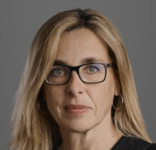
Àngels Fitó has a PhD in Business and Economics from the University of Barcelona, is a senior professor at the UOC, and has been Vice President for Competitiveness and Employability since 2019. In 2023 she was appointed as Universitat Oberta de Catalunya President.
Between October 2010 and February 2019, she was dean of the UOC’s Faculty of Economics and Business. Throughout her academic career, she has specialized in tax and financial management and management control, and has taught courses on these subjects at a number of universities (University of Barcelona, Universitat Politècnica de Catalunya, Universitat Autònoma de Barcelona, Pompeu Fabra University, and the University of Vic – Central University of Catalonia). She combined her teaching work with a professional career in accounting and tax consulting for private companies and public institutions.
She is deputy chair of the Catalan Professional Association of Economists and a member of the Government of Catalonia’s Economic Policy Advisory Board. Her research interests focus on financial reporting harmonization processes, management control systems and the transformative power of higher education for employability given the complexity of labour market dynamics. She leads a number of different local and international initiatives in this field to reconfigure higher education and provide a response to the challenges for lifelong learning arising in the current context of transition.
Title: “Navigating Global Challenges through Lifelong Learning: From teaching to empowering”
Abstract: In an era marked by profound economic and societal shifts driven by rapid technological advancements, universities must transcend their traditional role of knowledge creation and dissemination. Instead, they must actively pursue strategies to amplify the transformative power of education, benefiting both individuals’ employability and organizations’ competitiveness. To achieve this goal, harnessing labor market insights and artificial intelligence technology becomes indispensable. In this context, we present the UOC experience as a guiding example of how universities can enhance employability by leveraging the immense potential of artificial intelligence and big data.

Melissa Bond is a Lecturer in Digital Technology Education at the University of South Australia (Australia), an EPPI-Reviewer Training & Support Officer at University College London (UK), and an Adjunct Associate Professor in Qualitative Evidence Synthesis at the University of Stavanger (Norway). Her research draws on her high school and higher education teaching experience and focuses in particular on how evidence synthesis can build research skills, provide insight into digital teaching and learning to provide guidance to both policy and practice, and identify key research gaps. Melissa is a member of the Center for Open Education Research, a founding editorial board
member of the Nordic Journal of Systematic Reviews in Education and she will soon be an Associate Editor for the Online Learning Journal.
Title: “Where Have We Been and Where Are We Going? Lessons From EdTech Evidence Synthesis”
Abstract: The past fifty years have seen vast developments in the use of technology for teaching and learning, and we have recently encountered another threshold moment; the rise and widespread popularisation of large language models such as ChatGPT-3. As we stand on the precipice of arguably a new era of teaching and learning, it is time to take stock of where we have been, in order to begin sculpting a future vision of teaching and learning. In order to help answer the key questions of this
year’s conference theme, this keynote will draw upon a body of evidence syntheses, in order to cast a meta overview of the EdTech field, and shine light on key considerations for research, policy and practice going forward.
After Lunch Session – Plenary 3

Maren Deepwell is the chief executive of the Association for Learning Technology, the leading professional body for learning technology in the UK with around 3,500 members. She has led the organisation since 2012 including a strategic transition to becoming a virtual team in 2018. Her particular focus is on professional recognition for learning technologists, the development of a new ethical framework for professional practice and the future of technology in education. As a trained sculptor and anthropologist, she brings both her creative and executive expertise to her professional practice as a leader, strategic adviser and coach.
Title: Hope on the horizon: Setting out in a new direction for digital education
Abstract: Over the past five years we have seen digital education scaled up, with fully virtual, blended and hybrid learning expanding to more and more learners. As we move beyond education in crisis response mode, we have a unique opportunity to shape what’s ahead and also a responsibility to apply the lessons learnt in 2020/21.
We saw what’s possible in an emergency, and also what isn’t. I want to acknowledge that we are seeking hope at a time when many are battling burnout, still picking up the pieces in a world in which many are still feeling the lingering impact of the global pandemic.
How do we find optimism, and a vision for a better future? Grounded in new research from ALT, on how professional practice in digital education is changing, and aligned with the Framework for Ethical Learning Technology (FELT), I will explore:
- Who has a say in shaping the future and whom we may be missing?
- What the future will hold for our students moving from hybrid learning to hybrid working?
- What do we need to consider in order to avoid going back as well as moving ahead into a future that doesn’t deliver?
Let’s find inspiration to create our visions of the future, without losing a critical perspective on digital innovation but with a renewed sense of hope and empowerment.
Submission Types and Guidelines
Authors are invited to submit high-quality manuscripts reporting original unpublished research and recent developments. Submissions should align to the conference theme and in the topics related to the scope of the conference (see below). All paper types will be double blind peer reviewed by members of the Scientific Committee. Find all the submission types and guidelines below.
General Presentation Guidelines
There is no standard presentation template at EDEN 2023 Annual Conference. This means you are free to use your own template, but we recommend that you do so using a 16:9 ratio in PowerPoint (or PDF), as all rooms are equipped with a computer and projector capable of widescreen display.
As a general principle ‘less is more’ with your slides containing just enough information or a handful of well-chosen images to enhance your talk rather than acting as your ‘notes’ of what you are going to say next. In other words, displaying an image and/or three keywords on a slide in a large font is far more effective than listing several sentences under bullet points. Also please practise your presentation so you know that you can do justice to what you want to cover in the available time. If you intend to share the talk with another presenter, then make sure you practice together and understand how long each of you has for your section of the presentation.
To promote follow-up discussion after your talk, we suggest that you conclude your presentation with a single question or challenging thought for delegates to ponder. Ideally, this question or your concluding thought should refer back to the sub-theme and relate to the overarching conference theme “Yes we can!” – Digital Education for Better Futures.
Note: The last presenter in each session is expected to serve as session chair.
Number of slides and time restrictions:
- Full paper: up to 20 slides, presentation time -15 min, discussion time – 5 min
- Concise paper: up to 15 slides, presentation time -10 min, discussion time – 5 min.
- Gasta paper: up to 12 slides. presentation time – up to 5 min.
Note: You do not need to send your presentations beforehand, but please bring them to the conference and transfer the presentation file to the session computer before the start of the session.
There are four different paper submission categories:
Full paper – A Full Paper allows you to present a slightly longer account of your work. This presentation format is better suited to sharing the findings of case studies, research projects or more mature innovations related to the conference theme/topics which allow you to provide a richer analysis, description and interpretation of the work. Importantly, a Full Paper should identify the main implications or discussion points which will be of wider interest to conference participants. The paper length is 2500 to 3500 words, including tables, figures and references. If your Full Paper is accepted, the presentation time is a maximum of 15 minutes and 5 minutes for questions (i.e., 20 minutes in total).
Concise paper – A Concise Paper allows you to present a shorter summary of your work. This presentation format is ideally suited to small projects, new and emerging areas and works in progress. The format allows you to showcase and/or offer a brief snapshot of your work, with a specific focus on the main findings or discussion points that should be of wider interest to conference participants. The length of a Concise Paper abstract should be 200-500 words. If your Concise Paper is accepted, the presentation time is 10 minutes with 5 minutes for questions (i.e., 15 minutes in total).
Poster – A Poster allows you to present your work on a poster board which will be on display throughout the conference. This format is ideal for showcasing and/or offering a brief snapshot of your work in order to generate more interest and follow up conversations with conference participants. The author(s) need to bring the printed poster to the conference and attach it on the poster board when they arrive at the conference venue. There will be a dedicated poster session in the conference programme, but we encourage presenters to be available to discuss their work during the refreshment breaks. Poster submissions are between 250 and 500 words, including references. Authors of posters accepted for presentation will be required to prepare a maximum A0 (1189mm x 841mm) size poster for display. More details concerning poster requirements will be provided upon acceptance.
Guidelines for posters:
The author(s) need to bring the printed poster to the conference and attach it to the poster board when they arrive at the conference venue. There will be a dedicated poster session in the conference programme, but we encourage presenters to be available to discuss their work during the refreshment breaks. Authors of posters accepted for presentation will be required to prepare a maximum A0 (1189mm x 841mm) size poster for display.
Note: Posters’ authors are not required to make poster presentations.
Gasta Presentation – A Lightning Talk (Gasta) allows you to present a very brief synopsis of your work in a fast, engaging and high-energy style where you only have 5-minutes to provide a quick account of your work. The term ‘Gasta’ is a Gaelic (Irish) word for a fast, quick, clever, smart or snappy presentation that shares an activity, innovation or piece of research in a brief rapid-fire style. This presentation format is ideally suited to showcasing an innovation, promoting a new development or reporting a line of research inquiry that may be of wider interest to conference participants. Gasta presentations submissions are between 150 and 300 words, including references. Authors of accepted Gasta presentations are limited to a maximum of 10 slides.
Action Lab– upon invitation only. Action Labs give participants the opportunity to debate, discuss and engage in lively professional dialogue on high profile topics or issues relevant to the conference theme. Each Action lab will be structured around a handful of big questions for participants to debate.
PhD Symposium
The EDEN 2023 PhD Symposium will be organized in the frame of the conference. The Symposium, held in previous years in Barcelona (2018), Bruges (2019), Dublin (2019), Timisoara (2020), Lisbon (2020), Madrid (2021) and Tallinn (2022) has been designed to foster the exchange of experiences and knowledge among doctoral students conducting research in the area of technology enhanced online, digital, open and distance learning, and provides a valuable forum for the advancement of doctoral research. The Symposium is open to all doctoral students, both PhD and EdDs, and will be led by the host university with contributions from EDEN Management Board members and a panel of international experts. Doctoral candidates are invited to submit a brief Synopsis Paper of their work in progress or proposed research topic, as there will be an opportunity to discuss your research during the Symposium. This Synopsis Paper should be a maximum of 500 words, including references. Participation in the Symposium is not dependent on submission of a paper.
General Instructions
As all submission types will be subject to a peer review process. Full Papers will be double blind peer reviewed by members of the Scientific Committee consisting of international experts working in the field. Other paper types will be peer reviewed by the conference co-Chairs and members of the Programme Committee. Authors should leave their names and affiliations blank when uploading submission documents, and take care to avoid details that could be used to identify contributing authors. These include institution information, specific funding information and clear self-citations. Authors of selected top quality Full Papers will be invited to submit their manuscript for publication in a special issue of the EURODL. All Full Papers will be published in EDEN’s conference proceedings (ISSN: 2707-2819) with unique DOI. The formatting of all types of submissions should follow the guidelines and templates provided. References should follow the APA (7th) style. Please note that authors are limited to one Full Paper in which they are the first author. There is no restriction on the number of submissions by multiple authors.
Acceptance Criteria
Decisions on acceptance will be based on the following criteria:
- Originality
- Innovation
- Quality of scholarship
- Contribution to new knowledge
- Alignment to the conference theme
Contributions outside of the main conference themes will be considered if they bring new knowledge and benefit to delegates. The Conference co-Chairs and the Scientific Committee will make the final decision as to the accepted submission format in order to ensure quality and the coherence of the conference theme. Note that some Full Paper submissions may be accepted following revisions as Concise Papers after the review process. All Full Papers will be considered for the prestigious EDEN Best Research Paper Award, which will be presented at the Gala Dinner.
EDEN Best Research Paper Award in cooperation with The UNESCO Chair in Education and Technology for Social Change
EDEN Best Research Paper Award competition is based on evaluation results on submission of Full Papers presented to the Annual Conference that follow five standard evaluation criteria:
- The paper deals with a research question.
- Rigorous examination/research methods are applied.
- Findings, results and outcomes are convincingly presented and critically examined.
- Conclusions are thoroughly discussed (including applicability, transferability, and further research.
- Literature is reviewed against state of the art.
The composition of the honorable jury for the EDEN Best Research Paper Award is composed in cooperation with The UNESCO Chair in Education and Technology for Social Change:
- Alfredo Soeiro, Chair, University of Porto, Portugal
- Orna Farrell, Dublin City University, Ireland
- Maria Rosaria Re, University of Roma Tre, Italy
The decision on the winner of the EDEN Best Research Paper Award will be announced on June 19th at the EDEN Annual Conference Gala Dinner in Dublin, Ireland.
Yes, You Can! How to Successfully Contribute to the EDEN 2023 Annual Conference
This interactive webinar is designed to show that “Yes, you can” submit a paper for this year’s annual EDEN conference (18-20 June).The main part of the webinar is then designed to offer prospective authors and presenters an inside track on the different paper categories and how to successfully prepare their own conference submission. Members of the conference team share key tips and advice on what makes a great conference paper and how you can ensure your submission is accepted for the Dublin conference. This advice will be particularly helpful for doctoral students and those relatively new to preparing conference submissions. Finally, members of the local team offer practical information on the conference venue and provide travel and accommodation advice to help enhance your visit to Dublin.
The EDEN 2023 Doctoral Symposium will be organized in the frame of the conference. The Symposium, held in previous years in Barcelona (2018), Bruges (2019), Dublin (2019), Timisoara (2020), Lisbon (2020), Madrid (2021) and Tallinn (2022) has been designed to foster the exchange of experiences and knowledge among doctoral students conducting research in the area of technology enhanced online, digital, open and distance learning, and provides a valuable forum for the advancement of doctoral research. The Symposium is open to all doctoral students and will be led by the host university with contributions from a panel of international experts. Doctoral candidates are invited to submit a brief Synopsis Paper of their work in progress or proposed research topic, as there will be an opportunity to discuss your research during the Symposium. This Synopsis Paper should be a maximum of 500 words, including references. Participation in the Symposium is not dependent on submission of a paper.
The aims of the PhD Student Symposium are to:
- Create a community for intellectual exchange and support among e-learning doctoral students researching in the area of.
- Give and receive practical feedback on research topics or specific problems or concerns about their research with their peers.
- Receive feedback on their research topics, problems and concerns from international experts in e-learning research who are experienced supervisors.
Take a look at the Official Programme of the EDEN 2023 PhD Symposium:
Call for presentations
Doctoral students in the field of e-learning and educational technology are encouraged to submit short abstracts to present an overview of their research at the PhD Student Symposium. Proposals should be related to the research topics of the actual Symposium.
PhD students must currently be studying, i.e. have had their research proposals approved but have not yet defended their theses. Preference will be given to students who have collected data to analyse. Doctoral candidates are invited to submit a brief Synopsis Paper of their work in progress or proposed research topic, as there will be an opportunity to discuss your research during the Symposium. This Synopsis Paper should be a maximum of 500 words, including references. Participation in the Symposium is not dependent on submission of a paper.
Committee Members
The expert committee is composed by:
- Mark Brown, EDEN Treausrer, Dublin City University, Ireland
- Orna Farrell, Dublin City University, Ireland
- Eamon Costello, Dublin City University, Ireland
- Denise Whitelock, EDEN Vice-President of Research
- Enda Donlon, Dublin City University
- James Brunton, Dublin City University
- Airina Volungevičienė, Vytautas Magnus University, Lithuania
- Alan Tait, Professor Emeritus of Distance Education and Development, The Open University, UK
- Wim Van Petegem, KU Leuven, Belgium
- Sarah Guri-Rosenblit, The Open University of Israel, Israel
- Albert Sangra, Universitat Oberta de Catalunya, Spain
- Sandra Kucina, Zagreb University, Croatia
- Alfredo Soeiro, University of Porto, Portugal
Intended participants
The PhD Student Symposium is an open-invitation event for all PhD students and their supervisors working in the field of e-learning or educational technology. It is aimed at current doctoral students enrolled in any university, both full-time and part-time. We encourage you to take this opportunity to network with fellow researchers, discuss your research, and receive feedback from international experts and your peers.
In addition to submitting an application to the PhD Symposium, PhD students are also welcome to send submissions to the Annual Conference.
Date and place of the symposium
The next PhD Student Symposium will take place in June at the EDEN 2023 Annual Conference in Dublin on 18 June.
Contact
If you are have any questions or doubts concerning the PhD Symposium, please email to secretariat@eden-europe.eu
PhD Symposium: 18th of June 2023
Conference Dates: 19th-20th of June 2023
Gala Dinner: 19th June 2023
Open of Paper Submission: 1st February 2023
Event promotion webinar on how to successfully write/submit an abstract: February 2023
Deadline for submissions: 31st March 2023
Notification of acceptance: Poster, Gasta, Concise, Action Lab Proposals – 14th of April 2023
Notification of acceptance: Full Papers – 28th of April 2023
Registration opens: 3rd March 2023
Early Bird Registration Deadline: 10th May 2023
Final Camera-Ready Manuscript for Full papers: 5th of June 2023
Authors’ Registration Deadline*: 5th of June 2023
Delegates’ Registration Deadline: 15th of June 2023
Published Proceedings: September 2023
*At least one of the authors of the submission needs to be registered and paid by June 5, 2023 to get the paper included into the Conference program and proceedings
Find below the official programme of the EDEN 2023 Annual Conference hosted by National Institute for Digital Learning (NIDL), Dublin City University, 18-20 June 2023. Also, find here more information about the EDEN 2023 Conference Campus:
Take a look at the official programme of EDEN 2023 Annual Conference and join the live-stream via YouTube on the sessions marked as “Live Streamed via EDEN YouTube”
NB: All presenters are expected to install their presentation files on the local laptop in the allocated room before their session. It is advised to bring a USB storage device instead of trying to log in to clouds or mail discs which is time consuming and may require additional security logs.
• Josep M. Duart, EDEN DLE President, Spain
• Mark Brown, Ireland
• Denise Whitelock, EDEN DLE Vice-President for Research, UK
• Orna Farrell, Ireland
• Airina Volungevičienė, Lithuania
• Sandra Kučina Softić, Croatia
• Helga Dorner, Hungary
• Alfredo Soeiro, Portugal
• Mart Laanpere, Estonia
• Antonella Poce, Italy
• Wim E.A. Van Petegem, Belgium
• Vlad Mihăescu, Romania
• Elena Trepule, Lithuania
Find below the Registration Fees for EDEN 2023 Annual Conference in Dublin hosted by NIDL – National Institute for Digital Learning (Dublin City University).
*The number of seats to Gala dinner is limited due to venue capacity limitations. The tickets for Gala dinner are available for first come first serve participants and is likely to sell out.
Key Dates:
Registration opens: 3rd March 2023
Early Bird Registration Deadline: 10th May 2023
| Registration Fees | |
| Registration Fees – Late Member | 480€ |
| Registration Fee – Late Non Member | 550€ |
| Registration Fees – Early Bird Member | 430€ |
| Registration Fees – Early Bird Non Member | 490€ |
| Registration Fees – Students | 380€ |
| Registration Fees – Late Students | 400€ |
In case you need to apply for Visa: https://www.dfa.ie/travel/visas/visas-for-ireland/
Host Institution
Dublin City University (DCU) hosts this year’s EDEN conference. DCU is a young, ambitious and vibrant university with a mission ‘to transform lives and societies through education, research, innovation and engagement’. Known as Ireland’s ‘University of Enterprise’, DCU is a values-based institution committed to delivering impact for the public good.
DCU is based on three academic campuses in north Dublin. More than 18,000 students are enrolled across five faculties – Science and Health, DCU Business School, Computing and Engineering, Humanities and Social Sciences and the DCU Institute of Education. DCU has one of Europe’s largest faculties of education, with over 4,500 students. It also hosts several leading research centres, including the National Institute for Digital Learning (NIDL), which aims to be a world leader at the forefront of new blended, online and digital education models. DCU has been a pioneer in the provision of flexible learning through new technologies over the past 40 years.
Conference Venue
This year’s conference will take place on DCU’s St Patrick’s campus. The campus is home to the DCU Institute of Education right in the heart of Dumcondra village. The central city is 30 minutes walk, with taxis and buses passing by every few minutes. Buses from the central city departing from O’Connell street take less than 10 minutes to reach the campus. Most of the conference programme will be in E Block, including the PhD Symposium, listed as number 5 on the campus map. Signs will direct conference delegates to the registration desk, welcome reception and presentation rooms. The video below provides a brief overview of the St Patrick’s campus.
Acommodation Options
While Dublin has many accommodation options, June is a popular month for tourists and conference delegates are advised to book early to avoid disappointment. There is added pressure on accommodation in Dublin as many hotels continue to host displaced people from Ukraine. While Dublin City University (DCU) may release some student accommodation closer to the start of the conference, bookings are currently on hold as these rooms may be required to host Ukrainian families over the summer.
Limited student accommodation is available through DCU. Delegates need to contact reservations@dcu.ie directly to check on the availability of this accommodation.
The following hotel options are recommended due to their close proximity to the conference venue. However, delegates may prefer to stay in the central city, a short taxi, bus or walk from DCU’s St Patrick’s campus. Please note that the Gala Dinner will be held in the city centre.
Dublin Skylon Hotel
Located in the heart of Drumcondra village, with many restaurants and supermarkets nearby, and less than a 5-minute walk from the conference venue, the Skylon Hotel is the most convenient accommodation for delegates. An express taxi/bus lane is located directly outside the hotel giving guests quick accessibility to the Dublin city centre. The city centre is approximately a 30-minute walk from the hotel. More information here.
Bonnington Hotel
This large older hotel with 200 rooms is only a 10-minute walk from the conference venue. It has an attached leisure centre, and the hotel is conveniently located on the main route to Dublin’s International Airport (6km). Only 3km from the centre of Dublin (a 35-minute walk), taxis and regular buses pass by every few minutes. More information here
*The number of seats to Gala dinner is limited due to venue capacity limitations. The tickets for Gala dinner are available for first come first serve participants and is likely to sell out.
Sunday, June 18th 2023
Starting at 17:00 on Sunday before the Welcome Reception, a free walking tour will be available to view DCU’s historic All Hallows campus. The campus hosts many historic buildings and is only a 10-minute walk. A visit to the Chapel and Library pictured below should not be missed. People wishing to join the walking tour should assemble by the registration desk for departure at 17:00 so everyone can be back in time for the welcome reception.
Meeting point: Conference Registration Desk
Address: Drumcondra Rd Upper, Drumcondra, Dublin 9: St Patrick’s Campus, DCU
Address: Drumcondra Rd Upper, Drumcondra, Dublin 9: St Patrick’s Campus, DCU

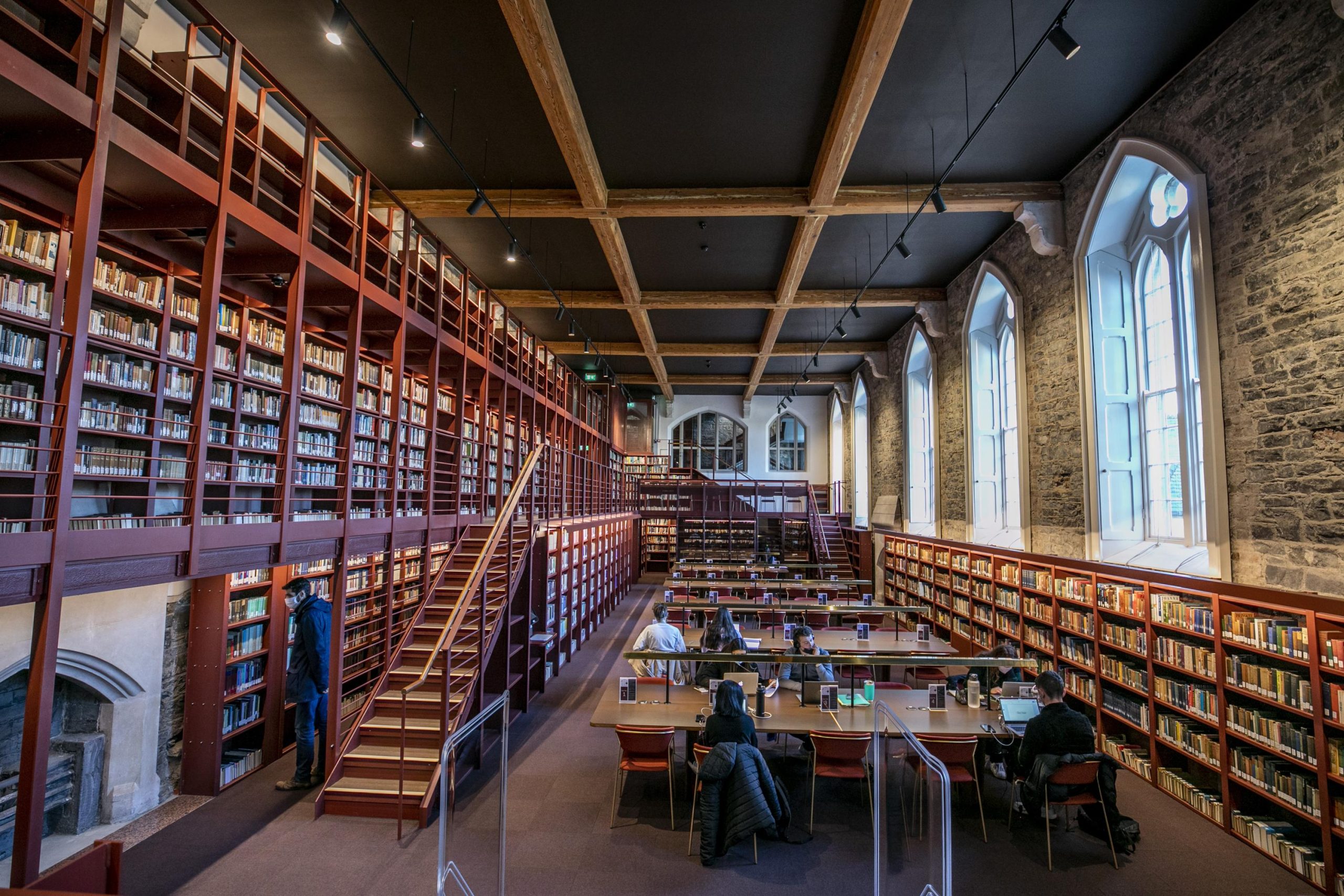
Monday, June 19th 2023
We are delighted to announce the venue in Dublin for EDEN‘s Annual Conference Gala Dinner – the world’s first fully digital museum – The Irish Emigration Museum – EPIC! Participants will be treated to a high interactive experience in one of Europe’s leading tourist attractions as they explore the museum with cocktails and canopies before dinner. Dinner will then take place in the same complex in the cellars of Urban Brewing.
Address: The CHQ Building, 1 Custom House Quay, North Dock, Dublin 1
Important! The seating capacity for the Gala dinner is limited and tickets are issued on a first come first served basis. Therefore, we encourage people to register to the conference early to secure yourself a seat to this spectacular Gala Dinner venue.
On arrival, guests will have welcome drinks and canapés in the main foyer of the Epic Museum. Then guests will have the opportunity to explore the world’s first fully digital museum – The Irish Emigration Museum – EPIC Museum.
Guests will return to the main foyer. Presentation of the EDEN Best Research Paper Awards in cooperation with The UNESCO Chair in Education and Technology for Social Change.
After the welcome reception, guests walk to the adjacent restaurant Urban Brewing for the Gala dinner.
People with dietary requirements have colour code cards on tables.
